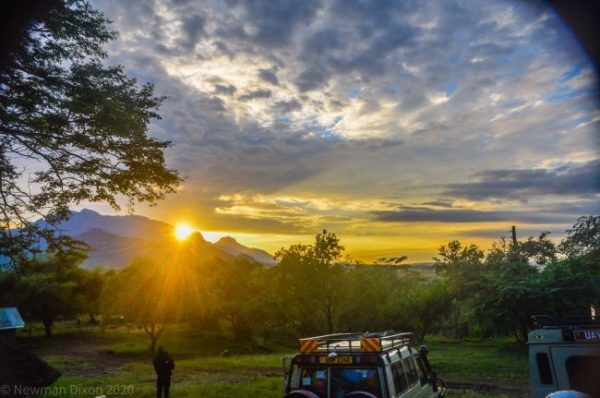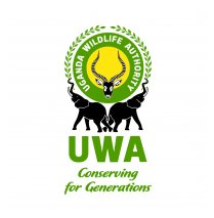Get to know your destination and read our Uganda Travel Advice. When considering to visit the Pearl of Africa, there are some things that you need to know for a hustle free safari holiday. From entry requirements, money, food and things to pack to health status for gorilla trekking. Find more and know your destination in advance useful in planning a safari. Use the following link for tips on Accommodation in Uganda.
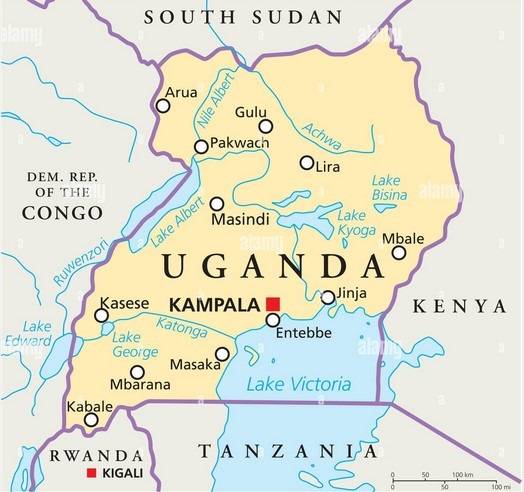
Summary of the content:
Uganda is a tropical country with a dry and wet season, with sunshine all year round.
The best time to visit Uganda is the dry season from June to September and December to February, with an average temperature of 18-23 degrees Celsius in the central around Entebbe and Kampala city, as well as on the northern shores of Lake Victoria.
While you could expect temperatures of about 29 to 34 degrees Celsius in the northern parks like Murchison Falls and Kidepo Valley National Parks.
Entebbe Intl. Airport is the only main gateway to Uganda.
You don't fly to Kampala. The airport is located in Entebbe town. About 37 km
(1-hour drive) from Kampala city. There are domestic airstrips in most national parks for those intending to do flying in safaris using light charter air crafts.
The Center for Disease Control classifies Uganda as having risk of Hepatitis A and B, with infants of 6 and above for A and all ages for B requiring prevention.
Uganda does not have strict dress code, but it is essential to observe the appropriateness of dress and behavior at a given place.
How to pay: Uganda Shillings (UGX) is the official currency. The approximate exchange rate for Uganda shillings vs. USD or Euro is: 1 USD equivalent to 3700 ugx, 4000 1 EUR equivalent to 4000 ugx, and 1 Pound Sterling equivalent to 4580 ugx. Payments are accepted in cash, credit cards, and mobile money, especially in banks, hotels, lodges, and some supermarkets mainly in large cities such as Entebbe, Kampala, and Jinja.
How to apply for a Visa for Uganda
Visa regulations
In general Tourists need a visa. However, the Uganda government policy may determine who enters the country with or without having to apply for one. Check the status of your home country on the official list of visa exempt nations.
The single-entry tourist visa cost is 50 USD per person valid for 90 days. Available for application online via the Ministry of Internal Affairs immigration portal.
The alternative way is to apply through an reliable tourism agency or incoming tour operator and apply at no extra cost. Some service charge might apply.
Required Vaccinations and Health prevention
Basic advice:
A yellow fever certificate is required for all travelers up from 9 month of age. Be aware of Malaria in many parts of Uganda especially Murchison Falls, Kidepo, Bwindi and in Kampala capital city. There are several ways to prevent yourself whilst on safari such as taking anti-malaria drugs, seeking medical advice from your doctor, insect repellent and sleeping under a mosquito net.
The Center for Disease Control classifies Uganda as having risk of Hepatitis A and B. Infants of 6 and above for A and all ages for B should prevent themselves.
Read the recommendations of the Centers of Desease Control and Prevention (USA) as a further guideline
Drinking Water
In regard to drinking water, stick to mineral bottled and avoid tap water!
We highly recommend a travel insurance for your trip as part of a general Uganda Travel Advice!
Arrival to Uganda – Airport
Entebbe Intl. Airport is the only main gateway to Uganda. You don’t fly to Kampala. The airport is located in Entebbe town about 37 km (1-hour drive) from Kampala capital city.
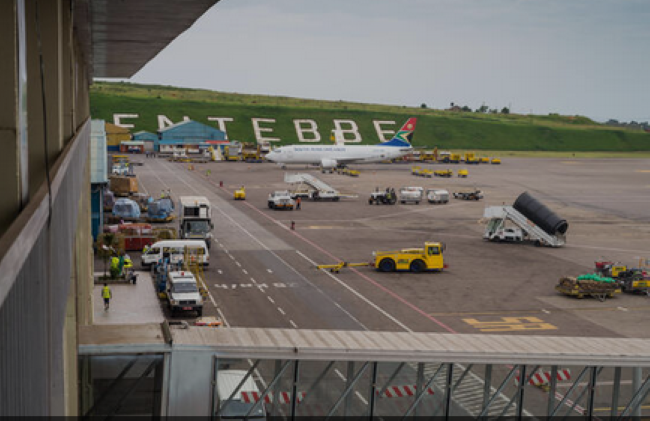
There are domestic airstrips in most national parks for those intending to do flying in safaris using light charter air crafts or helicopters. These include Kajjansi in Kampala, Pakuba in Murchison Falls, Apoka in Kidepo Valley, Kihihi and Kisoro airstrips for Bwindi Impenetrable Forest National Park.
Domestic airlines are available. You may use Eagle Air, Aero Link which operate daily scheduled flights across the country. In addition, helicopter services are available for special interest travelers.
Local currency and payments – Uganda Travel Advice
Local currency
Uganda Shillings abbreviated as (UGX or Ug shs.) is the official currency. Writing /typing the amount the figures must end with this sign as indicated below. Ugandan currency is available in coins of 100/=, 200/=, 500=/ and 1000/=. Paper money comes in 1000/=, 2000/=, 5000/=, 10000/=, 20000/= and 50000/=. Approximate Exchange Rate Uganda shilling (ugx) vs. USD or Euro is: 1 USD equivalent to 3700 ugx, 4000 1 EUR equivalent to 4000 ugx and 1 Pound Sterling equivalent to 4580 ugx.
However, the exchange rates fluctuate with where you do it from and travel seasons – they might be high in banks during summer and vise vasa. Forex bureaus offer better currency exchange rates than Banks. If you change a larger amount of money you may get a better exchange rate. U.S dollar notes older than 2016 aren’t acceptable in Uganda.
Payments
In regard to making payments, cash, credit cards and mobile money are widely acceptable methods. This is especially in banks, hotels, lodges and some supermarkets mainly in large cities such as Entebbe, Kampala and Jinja. In particular, the Uganda Wildlife Authority (UWA) accepts only cashless form of payment such as credit card, mobile money for park entrance fees. You could pay Gorilla permits and other activities either in cash or cashless at the UWA headquarters in Kampala capital city.
Goods and services in retail shops, road side food markets or souvenir shops and community activities such as village walks are mostly paid in cash. For that matter, you’ll need small notes in Uganda shillings for shopping, transport and tipping among other small payments you might make.
Safety deposit small boxes for tourists are available at Diamond Trust Bank (DTB) and Exim Bank in Kampala city. Though, you can get one at Jumia online shop.
Most banks use ATMs and offer foreign currency transaction fees. Citi bank is best for wiring money.
Public Holidays Uganda 2026
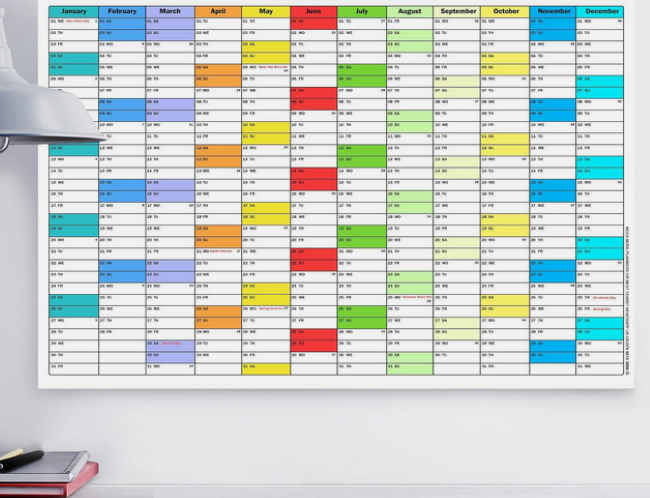
- January, 1st, New Years Day
- January, 26th, NRM Liberation Day
- February, 16th, Archbishop Janani Luwum Memorial Day
- March, 19th, Eid al-Fitr
- March, 8th, International Womens`Day
- April, 3rd, Good Friday
- April, 6th, Easter Monday
- May, 1st, Labour Day
- May, 26, Eid al-Adha
- June, 3rd, Uganda Martyrs’ Day
- June, 9th, National Heroes’ Day
June, 16th, Eid al-Adha - June, 21st, Fathers´Day
- October, 9th, Independence Day
- December, 25th, Christmas Day
- December, 26th, Boxing Day
Uganda Travel Climate
Our Uganda Travel Advice would not be complete without the weather conditions you could expect. Uganda is located across the equator and has a tropical climate with the dry and wet seasons. There is sunshine all year round. The best time to visit Uganda is the dry season from June to September and December to February. During this time, the average temperature is around 18 – 23 degrees Celsius in the central around Entebbe and Kampala city on the northern shores of Lake Victoria and 29 to 34 degrees Celsius in the northern parks like Murchison Falls and Kidepo Valley National Parks.
In the tropical forests such as Bwindi Impenetrable Forest in south-western Uganda, temperatures drop to 11 degrees Celsius at night but there’s high humidity up to 78%.
On the other hand, the wet season occurs in April to May and October to November in the central and western safari regions of Uganda. However, in the north-east Karamoja region which is semi-desert, the rain season occurs in March and October only.
What to wear – Uganda Travel Advice
Another interesting Uganda Travel Advice: Uganda doesn’t have strict dress code and people wear both contemporary and casual clothing. Though, observing the appropriateness of dress and behavior at a given place is essential. In particular, what to bring along in clothes for safari should relate to personal travel experience. Please obey the travel season and planned activities.
December to February and June to September is Uganda’s dry season. It calls for hot sunshine which you must prepare for as you would for the rainy season – muddy trails and cold nights. Bring what makes you comfortable and to suit your length of stay and places to go.
For “what to pack for a safari” check out our post


